Picture this: you're rocking a vibrant tech-based operation, navigating the digital seas like Captain Jack Sparrow.
Life's good, but you realize you need some tailwind in the form of efficient business software.
So, you hear whispers from fellow seafaring entrepreneurs about PPM and PSA. These acronyms seem to be causing quite a stir.
But hold on, what in the digital world are they?
It's pretty simple - they're key pieces of software to streamline your business process.
The not-so-simple part? Understanding the difference between these two powerhouse tools.
Here, we'll break it down (without using too much jargon, promise!), helping you make an informed choice with clear facts about PPM and PSA software up your sleeve.
Project and resource management requires the use of specialized software. These include both PPM (Project Portfolio Management) and PSA (Professional Services Automation) software. As valuable as these solutions are, they have distinctly different uses and cater to a range of industries.
An overview of PPM and PSA software
PPM, or Project Portfolio Management software, is primarily used to collectively handle and analyze an organization's projects, business processes, and strategic initiatives. It helps managers make informed decisions by providing a holistic overview of all active projects.
On the other hand, PSA, or Professional Services Automation software, is used by professional service firms to automate and simplify their business operations and workflow. This includes task allocation, time tracking, invoicing, and HR management. By using a PSA, these firms can streamline their operations, track productivity, and increase profitability.
Here's a quick summary:
PPM software: Provides an overview of all active projects and supports strategic decision-making.
PSA software: Automates business functions for professional service firms, boosts productivity, and helps increase profit margins.
What is PPM software?
Project Portfolio Management software, commonly known as PPM software, is a tool designed to help project management teams plan, manage, and execute a portfolio of projects.
The primary objective of PPM software is to align projects with business strategies and facilitate resource optimization. Its main functionalities include capturing and prioritizing project requests, conducting portfolio analysis, making effective resource allocations, tracking project progress, and enhancing collaborative decision-making.
Key features of PPM software
PPM software comes equipped with an array of comprehensive features.
Here are some key ones:
- Project scheduling and planning: This feature allows teams to set timelines and allocate resources effectively.
- Budget and cost management: It aids in planning and managing project budgets to prevent overspending.
- Risk management: It identifies and mitigates potential risks associated with a project.
- Reporting and analytics: PPM software generates insightful reports and analytics, providing a holistic view of project progress, performance, and profitability.
Benefits of using PPM software
Implementing PPM software can bring a multitude of advantages to organizations. Here are the most significant ones:
- Enhanced decision-making: PPM software provides real-time information and insights, enabling effective strategic decision-making.
- Improved resource utilization: It helps optimize the use of resources, reducing wastage and maximizing efficiency.
- Increased project success rates: With the comprehensive management of project portfolios, PPM software minimizes drawbacks and improves the success rate of projects.
- Cost efficiency: By managing project costs, identifying potential risks, and mitigating them, PPM software ultimately results in significant cost savings.
In short, PPM software offers a strategic approach to managing and aligning multiple projects with business objectives, thus avoiding mismanaged resources and ensuring each project contributes to the overall business success.
What is PSA software?
Professional Services Automation (PSA) software is a digital tool designed to help professional services companies streamline their operations and workflows. These kinds of solutions are focused on businesses offering services rather than products, such as consultancies, law firms, or marketing agencies. Such businesses rely on project-based work, which is often collaborative and cross-departmental.
The core functionalities of this kind of software include project management, time and expense tracking, resource management, and billing. PSA software allows for an integrated approach to managing projects, providing end-to-end visibility and aiding in coordination among team members.
Key features of PSA software
The features offered by PSA software can greatly vary, but a few of them are generally seen across different solutions:
- Project management: PSA software offers tools for scheduling, task assignment, milestone tracking, and risk management.
- Resource management: This feature involves the allocation of resources (like people, equipment, and tools) to projects.
- Billing and invoicing: This includes the generation of client bills, timesheet-based invoicing, and financial reporting.
- Time and expense tracking: This allows teams to monitor the time and expenses dedicated to a specific project.
- Collaboration tools: These include tools for communication, document sharing, and workflow management.
Benefits of using PSA software
Using a PSA tool presents several advantages to business operations:
- PSA software helps to increase efficiency and productivity by automating repetitive tasks and improving coordination between teams.
- They facilitate better project delivery by offering real-time visibility into project status and the resources dedicated to it.
- PSA software aids in ensuring timely billing and reduces revenue leakage through its time tracking and billing features.
- It facilitates improved client satisfaction by delivering projects on time and within the stipulated budget.
- PSA enhances team collaboration by providing a shared platform for communication and data access.
Differences between PPM and PSA software
Understanding the differences between PPM and PSA software is key to determining which one will best meet your organization's project and resource management needs.
These differences can be broadly categorized under four major headings: industry focus, scope, features, and integration.
1. Industry focus
PPM software mainly caters to project-based organizations, including those in the manufacturing, engineering, and construction sectors. It is designed to facilitate the strategic planning and execution of numerous projects, helping project managers balance the resources and risk while maximizing the value of project portfolios.
On the other hand, PSA software is often more appropriate for service-based businesses, such as IT services, consulting firms, and professional services organizations. It helps these companies manage and automate their service delivery processes, track the efficiency of service operations, and improve client interactions.
2. Scope
The scope of coverage is another clear distinguisher between PPM and PSA software. PPM software focuses on managing a collection of projects as a portfolio. It aligns projects with business objectives and ensures effective delivery, essentially playing a big-picture, strategic role.
Contrastingly, PSA software is geared toward operational processes. With an emphasis on services automation and resource management, it helps organizations streamline project delivery, manage resources efficiently, and automate billable work, leading to enhance customer satisfaction and profitability.
3. Features
With regards to features, PPM software emphasizes project planning, tracking, and reporting. It helps with strategic decision-making through benefits realization, risk management, budgeting, scheduling, and forecasting.
However, PSA software majors on features like resource allocation, time tracking, invoicing, and billing, which directly affect service delivery, resource utilization, and revenue recognition. It ensures that every billable hour gets accounted for while simultaneously monitoring project budgets and timelines.
4. Integration
Lastly, in terms of integration, PPM software often integrates with other project management tools to expand its functionality. On the other hand, PSA software generally integrates with CRM (Customer Relationship Management) and financial systems, providing an end-to-end business solution that supports both service delivery and client relationship building.
Choosing the right software for your organization
The decision between PPM and PSA software depends profoundly on a host of factors such as the organization's needs, industry factors, software features, costs, scalability, and user-friendliness.
We'll examine each of these elements in detail to help clarify which solution might better align with your organizational requirements in this section.
1. Assessing your organization's needs and requirements
The foremost matter to consider is understanding what your organization needs. Are you looking to manage multiple projects and explore strategic opportunities linked to these projects? PPM software might be the solution for you as it focuses mainly on managing and analyzing a group of projects from a strategic perspective, helping to align resources optimally, and prioritizing projects based on their strategic value.
On the other hand, if your organization leans more towards service delivery, you might find PSA software more suitable. It serves to automate and streamline processes, such as resource management, project accounting, and client communication, integral in managing daily operations of businesses, particularly in the services sector.
2. Considering industry-specific factors
Another criterion to look into is industry specific factors. Businesses in fields like IT, Engineering, or Consulting, where projects form a significant part of their operations, generally prefer PPM for its strategic perspective towards project execution. In contrast, industries like Legal Practices, Accounting or Advertising, that deliver professional services to clients, lean towards PSA due to its operational focus.
3. Comparing features, functionalities, and benefits
As previously discussed, PPM and PSA software have varied features, functionalities, and benefits. PPM software allows for better decision-making with portfolio visibility, risk management, and strategic planning. Concurrently, PSA software offers improved project efficiency, transparency in billing and expense tracking, and stronger relationships with clients due to better communication and service delivery.
4. Evaluating cost, scalability, and user-friendliness
Lastly, it would be best to take into account software costs, user-friendliness, and scalability. While both PPM and PSA software offer tiered pricing based on the scope and size of your operations, consider the long-term viability of your choice. Will the software scale with your organization as it grows? The ease of use is also crucial, as complicated interfaces might impede productivity and user adoption.
In conclusion, the decision between PPM and PSA software boils down to your unique requirements and circumstances. It is recommended to conduct a thorough assessment of your organization before settling on one.
Importance of choosing the right software for effective project and resource management
In the realm of project and resource management, choosing the right software can make a world of difference. Using PPM software can aid in maintaining control over numerous projects, thus preventing chaos and ensuring plans remain on track. On the other hand, PSA software can aid in automating routine tasks, improving the productivity of your team, and allowing resources to be distributed optimally throughout client engagements without future conflicts. Ultimately, selecting the right tool hinges on your organization’s specifics- its goals, nature of projects, industry, and work processes.
Get the best of both worlds with Rocketlane
Rocketlane PSA provides an extensively tailored solution designed to fulfill all your professional services needs. For those in professional services, Rocketlane has you covered. With Rocketlane, the need to switch between various tools is eliminated. It's the only tool you'll need for seamless collaboration with your customers and partners.
With Rocketlane, you can consistently deliver projects within budget and on schedule, while simultaneously improving the total client experience.
Rocketlane PSA provides a platform to improve project predictability, boost profitability, and hasten value realization. Through its seamless integration of project management, document collaboration, and communication, Rocketlane streamlines the project workflow. Furthermore, its integrated features for resource management, time-tracking, portfolio management, budgeting, and business intelligence allow you to effectively manage projects within the defined budgets and timelines. This not only increases revenue recognition but also enhances profit margins.
Try Rocketlane today!


.avif)



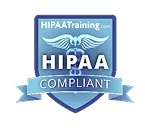
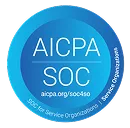
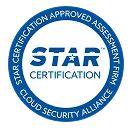
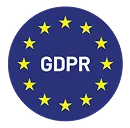
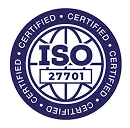









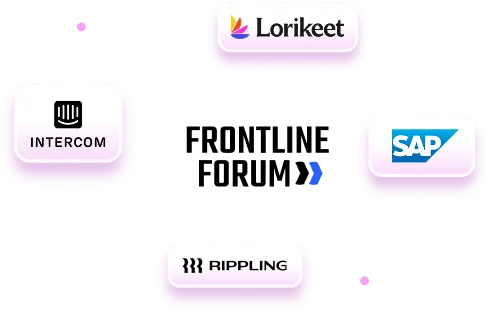
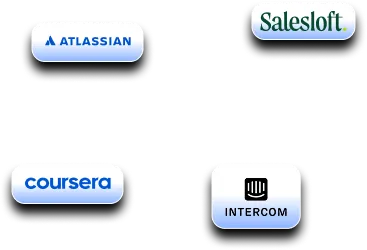
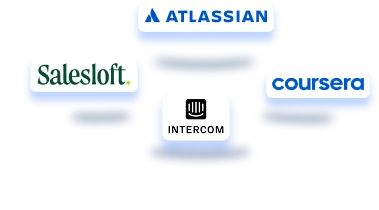
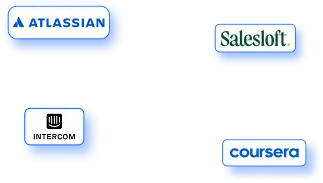
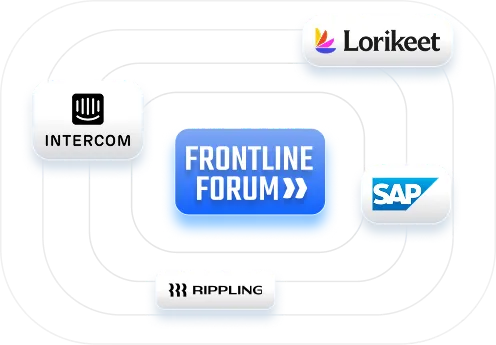
.webp)